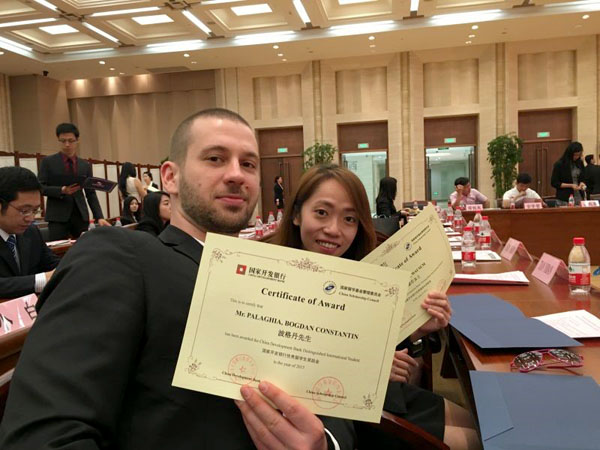No,the ease of getting a Chinese Government Scholarship varies but is generally competitive, requiring strong academics, recommendations, and sometimes research.
Table of Contents

Eligibility Criteria
Academic Requirements
To be eligible for a Chinese Government Scholarship, academic excellence is often a critical factor. Most scholarships require a minimum GPA, which varies depending on the level of education you are applying for.
- Undergraduate Programs: Typically require a high school GPA of at least 3.0.
- Master’s Programs: Usually, you need to have an undergraduate GPA of at least 3.0.
- PhD Programs: A master’s degree with a minimum GPA of 3.5 is often required.
Keep in mind that these are general guidelines and specific universities or programs may have their own set of academic requirements.
Language Proficiency
The language of instruction in China is mainly Mandarin, and some programs require proof of proficiency in the language.
- Mandarin Proficiency: HSK (Hanyu Shuiping Kaoshi) levels may be required, depending on the program.
- English-Taught Programs: If the program is taught in English, then an IELTS or TOEFL score may be necessary.
Age and Nationality Constraints
Eligibility can also depend on age and nationality.
- Age Limit: For bachelor’s programs, the age limit is generally 25. For master’s programs, it is often 35, and for doctoral programs, it is usually 40.
- Nationality: Generally open to all nationalities, except for Chinese nationals. Some scholarships, however, are tailored for specific countries under bilateral agreements.
Application Process
Where to Apply
The application process starts with choosing where to send your application.
- Online Portals: Most commonly, you’ll apply through the CSC (China Scholarship Council) website. This is the centralized platform for most Chinese Government Scholarships.
- University Websites: Some universities also offer the option to apply for the scholarship directly through their websites.
- Embassies & Consulates: Certain scholarships may require you to apply through the Chinese embassy or consulate in your home country.
Required Documentation
Collecting the right documents is crucial for a successful application. Always check the specific requirements for each scholarship and university, but generally, you’ll need the following:
- Passport Copy: A clear copy of your passport’s information page.
- Academic Transcripts: High school, undergraduate, or graduate transcripts, depending on the program.
- Language Proficiency Certificates: Either HSK for Mandarin or IELTS/TOEFL for English-taught programs.
- Letters of Recommendation: Usually two are needed, from professors or employers who can speak to your qualifications.
- Statement of Purpose: A detailed essay explaining why you are applying and what you hope to achieve.
Timeline for Application
Understanding the timeline is key to avoid missing deadlines.
- Research Phase: Normally begins a year before the intended start of your study program. This is when you gather all the information and decide where to apply.
- Application Window: For most scholarships, the application period is from January to April, although this can vary.
- Document Submission: All required documents usually need to be submitted before the end of the application window.
- Interviews and Additional Testing: If applicable, these usually occur between May and July.
- Award Notification: Awardees are typically notified from June to August.
- Visa Application and Pre-departure: This usually takes place in August and September, right before the academic year begins.

Scholarship Benefits
Understanding the benefits can help you determine if the scholarship will meet your financial needs and lifestyle expectations while studying in China.
Tuition Waiver
The tuition waiver is one of the most attractive benefits of a Chinese Government Scholarship.
- Full Tuition Waiver: Covers the entire cost of tuition for the duration of your program. It usually also includes lab fees and other academic costs.
- Partial Tuition Waiver: Some scholarships offer a partial tuition waiver, which means you will have to cover the remaining amount.
- Special Courses: Note that a full tuition waiver may not cover special courses or training sessions that are not part of the regular curriculum.
Monthly Stipend
A monthly stipend is often provided to help cover living expenses.
- Undergraduate Programs: Generally offer a monthly stipend of around 2,500 RMB.
- Master’s Programs: The stipend is usually higher, often around 3,000 RMB per month.
- PhD Programs: These programs usually offer the highest monthly stipend, typically around 3,500 RMB.
It’s important to note that the stipend is meant to partially cover living expenses, so additional personal expenses will likely be your responsibility.
Accommodation Benefits
Accommodation benefits vary depending on the scholarship and the university.
- On-Campus Housing: Many scholarships provide free or subsidized on-campus housing. These usually include basic amenities.
- Off-Campus Housing Subsidy: If you prefer to live off-campus, some scholarships offer a housing subsidy in lieu of free on-campus housing.
- Utilities: While housing is often provided, utilities like electricity, water, and internet might be your responsibility.
Level of Competition
Understanding the level of competition can give you insights into your chances of winning a scholarship and can help you better prepare your application.
Number of Applicants vs. Number of Awards
The number of applicants relative to the number of available awards can be an important indicator of how competitive the scholarship is.
- Highly Competitive Programs: Some popular programs may receive thousands of applications for a very limited number of awards.
- Niche Programs: Specialized or less well-known programs might have fewer applicants, making the scholarship somewhat easier to obtain.
- Annual Data: It’s useful to look at annual reports or statistics, if available, to get a sense of your odds of winning a scholarship.
Countries with the Highest Number of Awardees
The distribution of scholarships among different countries can also give you an idea about the level of competition.
- Bilateral Agreements: Some countries have bilateral agreements with China, which may allocate a specific number of scholarships to applicants from those countries.
- Emerging Economies: China often targets countries with emerging economies to bolster diplomatic and economic relations, which might influence the number of awardees.
- Historical Trends: It’s beneficial to research which countries have historically had a high number of awardees. This data can sometimes be found in reports or academic journals focused on international education.

How to Improve Your Chances
Knowing what makes a strong candidate can significantly improve your likelihood of receiving a scholarship. Here are some areas where you can enhance your application.
Extracurricular Activities
Participating in relevant extracurricular activities can make your application stand out.
- Leadership Roles: Having leadership experience in clubs, teams, or organizations can demonstrate your ability to manage and collaborate.
- Community Service: Involvement in community service shows a commitment to making a positive impact, a quality many scholarship committees value.
- Relevant Skills: Activities related to your field of study, such as academic clubs or industry-specific skills, can show a deep interest and expertise in your chosen area.
Letters of Recommendation
Strong letters of recommendation can provide the extra push needed to secure a scholarship.
- Academic Recommendations: Letters from professors who can vouch for your academic abilities are often given strong consideration.
- Professional Recommendations: If applicable, a letter from an employer or colleague that speaks to your skills and work ethic can also be beneficial.
- Personalized Letters: Generic letters are less impactful. Make sure the recommender knows you well and can write a personalized letter highlighting your strengths and suitability for the scholarship.
Research Publications
For postgraduate applications, having research publications can be a game-changer.
- Peer-Reviewed Journals: Publications in reputable, peer-reviewed journals are particularly valuable.
- Relevance to Field: Research that is closely aligned with your field of study can make your application more compelling.
- Collaborative Research: If you haven’t led your own research, being part of a research team and contributing significantly can also be counted in your favor.

